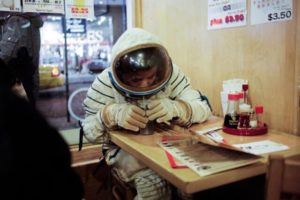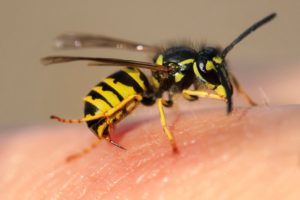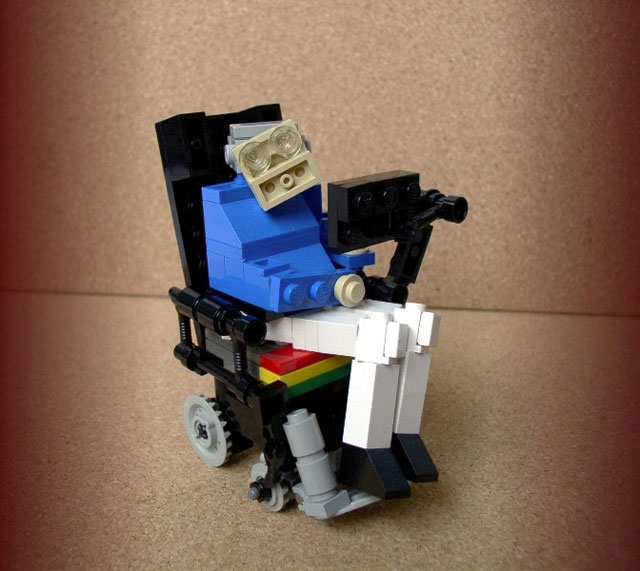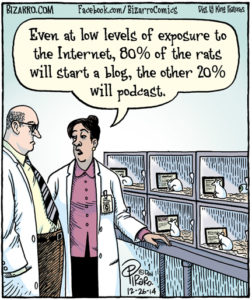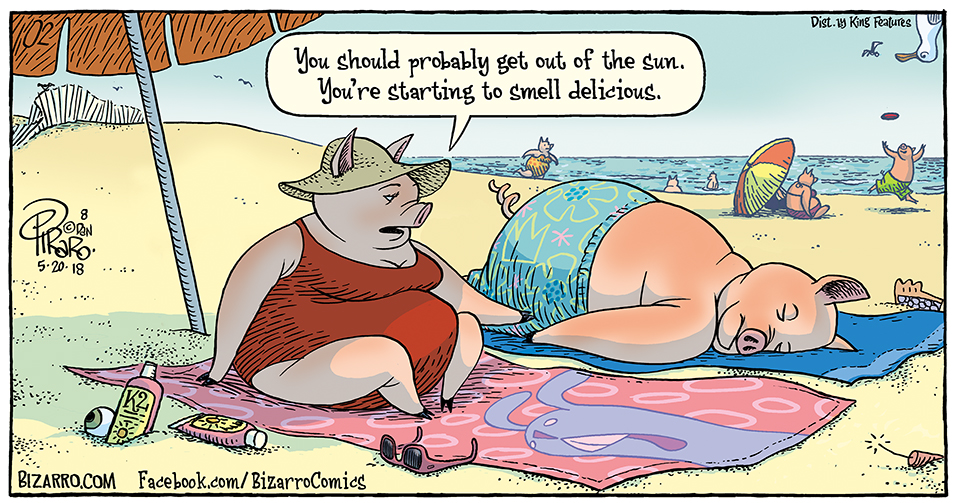 These are some highlights I made in “Tribe of Mentors: Short Life Advice from the Best in the World” by Timothy Ferriss. Tim sent out a list of questions to lots successful folks across a wide range of pursuits.
These are some highlights I made in “Tribe of Mentors: Short Life Advice from the Best in the World” by Timothy Ferriss. Tim sent out a list of questions to lots successful folks across a wide range of pursuits.
While Tim can sometimes be a bit of a self promoter and a gadfly he’s generally pretty insightful and has access to many high achievers who provide good advice.
I highlighted and bolded some of the ideas I liked, quotes I liked, and books that sounded like they might be interesting. Most the advice and ideas are given without an attribution because I don’t think it adds anything important, and the advice can stand on its own.
BTW, you can use an app called Bookcicion to get your Kindle highlights corralled into one handy PDF file.
Here’s some of the stuff I highlighted:
It’s not how well you play the game, it’s deciding what game you want to play.
What you seek is seeking you.
“You Are Not So Smart” by David McRaney
To do what you desire to do, you have all you need.
Cheer others on with the full knowledge that their success will undoubtedly be your own.
I realized that I had to let people leave my life, never to return. Every relationship I have in my life, from family and friends to business partners, must be a voluntary relationship. Sometimes you have to do a “crowd-thinner.” One wrong person in your circle can destroy your whole future.
You won’t take a bullet for pleasure or power, but you will for meaning.
Busy is a decision. Saying we’re too busy for something is shorthand for “not important enough.” You don’t find the time to do something; you make the time to do things.
What might look like luck is simply hard work paying off.
If you’re doing something you love, you don’t want work-life balance.
“Total Freedom” by Jiddu Krishnamurti is a rationalist’s guide to the perils of the human mind.
Happiness, or at least peace, is the sense that nothing is missing in this moment.
The genuine love for reading itself, when cultivated, is a superpower.
Happiness is a choice you make and a skill you develop.
The mind is just as malleable as the body. We spend so much time and effort trying to change the external world, other people, and our own bodies, while accepting ourselves the way we were programmed in our youth, accepting the voice that talks to us in our head all the time as the source of all truth. But all of it is malleable, every day is new, and memory and identity are burdens from the past preventing us from living freely in the present.
Follow your intellectual curiosity over whatever is “hot” right now. If your curiosity ever leads you to a place where society eventually wants to go, you’ll be paid extremely well. Do everything you were going to do, but with less angst, less suffering, less emotion. Everything takes time.
Ignore: The news. Complainers, angry people, high-conflict people. Anyone trying to scare you about a danger that isn’t clear and present. Don’t do things that you know are morally wrong. Not because someone’s watching, but because you are. Self-esteem is just the reputation that you have with yourself. You’ll always know.
Ignore the unfairness—there is no fair, so play the hand you’re dealt to the best of your ability. People are highly consistent, so you will eventually get what you deserve and so will they. In the end, everyone gets the same judgment: death.
Don’t wait.
I aspire to only work with people who I can work with forever, to invest my time in activities that are a joy unto themselves, and to focus on the extremely long term. So I have no time for short-term things: dinners with people I won’t see again, tedious ceremonies to please tedious people, traveling to places that I wouldn’t go to on vacation.
Memento mori—“remember that you have to die.” All of this will go to nothing. Remember before you were born? Just like that.
“The Double Helix” by James D. Watson and “The Selfish Gene” by Richard Dawkins.
Specializing – the great human achievement is to specialize as a producer of goods or services so that you can diversify as a consumer. Self-sufficiency is another word for poverty.
I can reframe conflicts as a chance to experiment with solutions.
We need a new diversity, not one based on biological characteristics and identity politics but a diversity of opinion and world views.
George Saunders imagines people as “nectar in decaying containers.”
“Making Sense of People” by Sam Barondes. The most useful mental model I’ve found to help understand what makes people tick. It’s called OCEAN: open-minded, conscientious, extroverted, agreeable, neurotic. The developers clumped every English adjective that could be used to describe someone into categories and reduced them to as small a set of factors as they could. The killer combination is high open-minded, high conscientious, low neurotic.
The responsibility to fully own the role of source rests with the source themselves.
Today when I speak with anyone about anything, I try to hold the perspective that the knowledge that they, and I, have very incomplete maps of reality.
“Integrity is the only path where you will never get lost.”
Ego is about who’s right. Truth is about what’s right.
I can’t give you a surefire formula for success, but I can give you a formula for failure: try to please everybody all the time.
You should use common words to say uncommon things.
The Back Buddy by the Body Back Company is my favorite purchase from the past five years, bar none.
“The Master and Margarita” by Mikhail Bulgakov
Whenever there is any doubt about doing something important, there is no doubt about not doing it.
The difference between winning and losing is most often not quitting.
The barnacles of the good life tend to slow you down, get used to risk-taking early in your career.
“Under Saturn’s Shadow” by James Hollis, a Jungian analyst.
The secret to change and growth is not willpower, but positive community.
Garret Keizer’s “The Enigma of Anger.”
”The Making of the Atomic Bomb” by Richard Rhodes
I’ve read everything Philip Kerr has written about the fictional Berlin policeman Bernie Gunther.
My advice is to choose a profession that’s really easy for you to do and also allows you to be creative. If it’s easy for you to do and somewhat difficult for your peers to do, you won’t have to work too hard to be successful and you’ll have enough spare time to enjoy life. You’ll also be able to put in extra hours to blow the others out of the water. If, on the other hand, you have to work long hours all the time just to be competitive, you’ll burn out and not enjoy life.
The best skill is to be able to communicate efficiently both in writing and speaking.
“People say that what we’re all seeking is a meaning for life. I don’t think that’s what we’re really seeking. I think that what we’re seeking is an experience of being alive.” –Joseph Campbell
If you must play, decide on three things at the start: the rules of the game, the stakes, and the quitting time.
“There is nothing that the busy man is less busy with than living; there is nothing harder to learn.” –Seneca
A stoic is always ready for any disaster and ready to embrace it, to turn it into opportunity. My wife used to ask me, “Why are you happy when something bad happens?” I am not happy, I am just not unhappy. I focus on removing what is wrong.
“Book of Strange New Things” by Michel Faber.
“A man is rich in proportion to the number of things he can afford to let alone.” –Henry David Thoreau
Persistence matters more than talent.
Things are never as good or as bad as they seem.
A lawyer, asks his client, who is being accused of being a spy, “Aren’t you worried?” His answer: “Would it help?” That’s the pivotal question that I ask myself every day. If you put everything through that prism, it’s a remarkably effective way to cut through the clutter.
Our culture puts such a premium on the notion of originality, but when you really examine just about any “original” thought or work, you find it’s a composite of previous influences. Everything’s a remix.
I want to be the chess player, not the chess piece.
When something goes badly, I don’t automatically assume I did something wrong. Instead I ask myself, “What policy produced this bad outcome, and do I still expect that policy to give the best results overall, occasional bad outcomes notwithstanding?” If yes, then carry on! Even the best policies will fail some percent of the time, and you don’t want to abandon them (or beat yourself up) as soon as one of those inevitable failures pops up.
The books “Superforecasting” by Philip E. Tetlock and Dan Gardner and ‘How to Measure Anything” by Douglas W. Hubbard have good advice on how to improve your ability to make accurate predictions. And “Decisive” by Chip Heath and Dan Heath explains four of the biggest judgment errors (like framing your decision too narrowly, or letting temporary emotions cloud your judgment) and gives tips for combating them.
One distraction I’ve learned to avoid is consuming media that’s just telling me things I already know and agree with (for example, about politics). I broke my media addiction by, essentially, reminding myself how much time I was wasting not learning anything.
There is no urgency to have it all figured out.
Every smart person and stable person I know both walks and meditates.
“As to methods there may be a million and then some, but principles are few. The man who grasps principles can successfully select his own methods. The man who tries methods, ignoring principles, is sure to have trouble.” –Ralph Waldo Emerson




